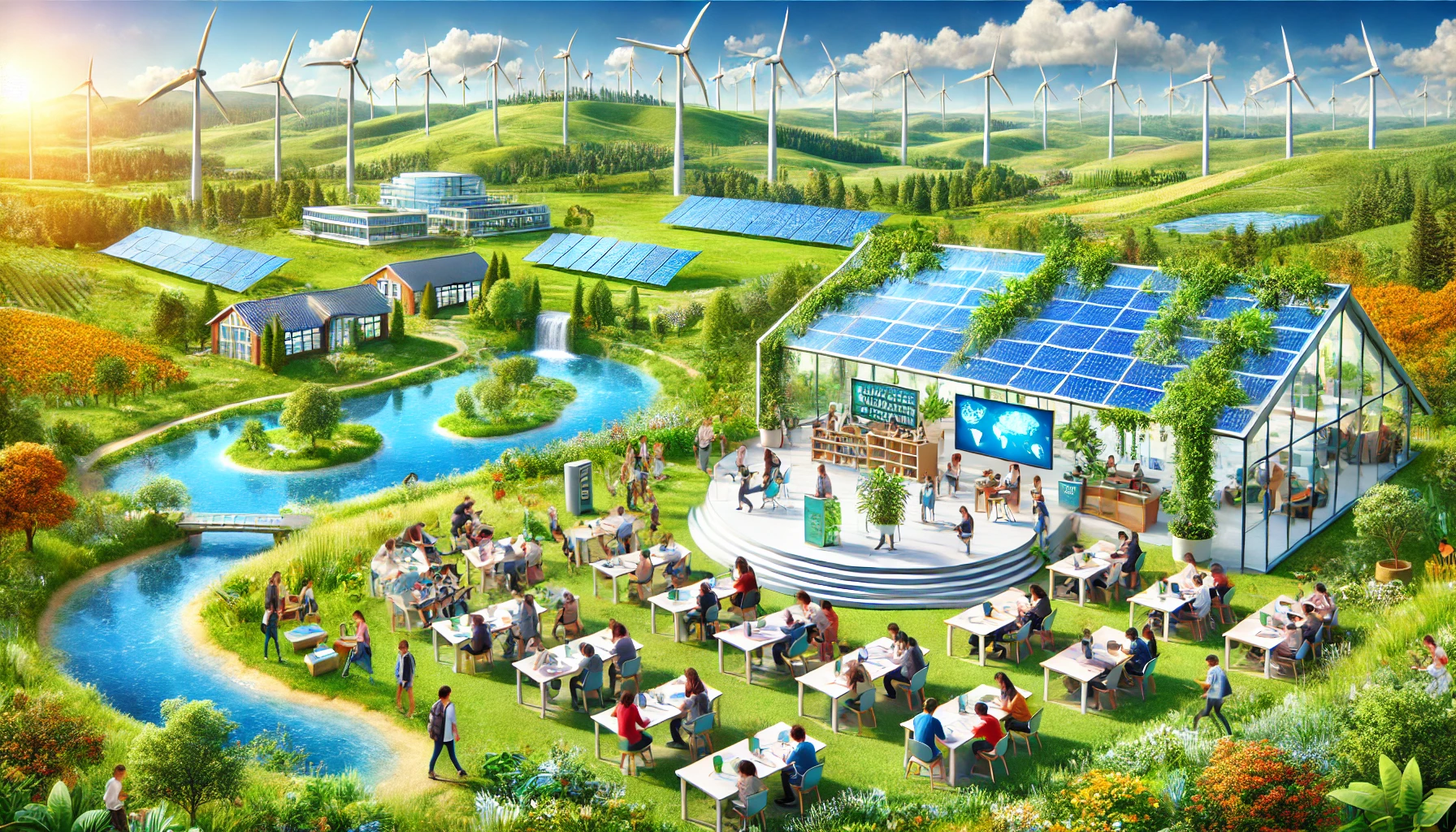Educating for a Greener Tomorrow: The Untapped Power of Schools in Climate Mitigation
The 2024 World Bank report emphasizes the critical yet underutilized role of education in driving climate action through behavior change, awareness, and green skills development. It urges investments in climate-resilient education systems to mitigate the impacts of climate change and prepare future generations for a sustainable future.

The 2024 World Bank report authored by Shwetlena Sabarwal, Sergio Venegas Marin, Marla Spivack, and Diego Ambasz, highlights the essential yet underutilized role of education in combating climate change. The report emphasizes that education is a powerful tool for driving behavior change, raising awareness about climate risks, and developing the skills required for transitioning to green economies. However, the authors note that in 2021, only 1.5% of global climate finance was allocated to education, despite its potential to significantly mitigate and adapt to climate change. This gap in funding reflects a broader underappreciation of the role education can play in addressing the climate crisis.
Education as a Catalyst for Climate Action
The report reveals that education is a strong predictor of climate awareness, with data showing that additional years of education can increase individuals' understanding of climate risks and their willingness to adopt pro-environmental behaviors. This is particularly important in low- and middle-income countries, which are disproportionately affected by climate change despite contributing the least to global carbon emissions. These countries face heightened vulnerability to climate-related events such as floods, droughts, and heatwaves, which in turn disrupt education systems. The report notes that, on average, schools in low-income countries lose 18 days of instruction per year due to climate-related closures, compared to just 2.4 days in high-income countries. This lost instructional time exacerbates existing educational inequalities and could result in long-term learning deficits for students in affected areas.
Youth and the Psychological Toll of Climate Change
In addition to the physical disruptions caused by climate events, the report highlights the psychological toll climate change takes on young people. It cites surveys showing that nearly 79% of youth in low- and middle-income countries believe their countries are in a climate emergency. Many young people feel anxious and helpless in the face of the climate crisis, with their concerns often compounded by a lack of actionable information on how they can contribute to climate solutions. The report identifies significant gaps in climate knowledge, particularly among older generations and in low-income countries, where climate awareness is still relatively low. Moreover, misinformation is a growing issue, with many teachers and students across various countries holding inaccurate beliefs about climate science.
The Power of Education to Drive Change
Despite these challenges, the report underscores the potential of education to drive climate action. It points out that education can promote climate-friendly behaviors, both by raising awareness and by providing individuals with the skills needed to adapt to and mitigate climate change. In particular, the report emphasizes the role of foundational skills such as literacy and numeracy in building climate resilience. These skills, the authors argue, are crucial for individuals to access and understand climate information and to take meaningful action. However, many students in low- and middle-income countries still lack these basic skills, which hinders their ability to engage with climate issues.
Rethinking Climate Education in Schools
The report also calls for a rethinking of how climate education is integrated into school curricula. While many teachers in low- and middle-income countries are already introducing climate topics into their lessons, the quality of this education is often poor, with many teachers lacking the necessary training to teach climate-related subjects effectively. The authors argue that climate education should be made more practical, actionable, and relevant to students' local contexts. They propose incorporating climate topics into existing literacy and numeracy lessons, rather than overloading the curriculum with new content. Additionally, they call for greater investment in teacher training to ensure that educators are equipped to deliver high-quality climate education.
Green Skills and the Role of Tertiary Education
Beyond school education, the report highlights the importance of tertiary education in building the green skills necessary for the transition to a low-carbon economy. It identifies a significant gap between the demand for green skills and the current supply of education and training programs focused on renewable energy and sustainable practices. The authors argue that tertiary education institutions should offer more flexible, accessible short courses that are responsive to the needs of both students and workers seeking to acquire green skills. Furthermore, they recommend improving access to information about the returns on investment in green skills, particularly for young people in low- and middle-income countries who are concerned about their future employability in a green economy.
The report concludes by urging policymakers to prioritize the adaptation of education systems to the realities of a changing climate. It proposes a low-cost adaptation package that includes measures such as temperature control, infrastructure improvements, remote learning options, and teacher training. These interventions, the authors suggest, could help mitigate the impact of climate disruptions on education systems, particularly in vulnerable regions. By investing in climate-resilient education systems and integrating climate education into core curricula, governments can not only protect educational outcomes from the effects of climate change but also empower future generations to lead the fight against the climate crisis.
- FIRST PUBLISHED IN:
- Devdiscourse










